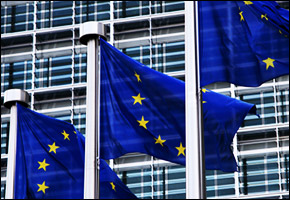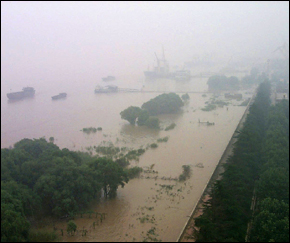Doubts Emerge as Europe Tests Common Waters

The European Union may soon boast a long-awaited common water policy, but experts worry about the flexibility of the Water Framework Directive – the EU’s main document of water legislation. Exemptions in the directive open loopholes that might compromise its “good water status” objective, a law professor said last week during the second annual conference on European Water Management Law in Brussels.
The EU hopes to use the “good water status” label to indicate that surface water systems have met certain ecological and chemical standards, providing a tool for consistent regional evaluation. But experts and politicians question its efficacy.
“I am not yet fully convinced of the profits of this new system, that it alone will lead to a better protection of water system or achieve the goals of the Water Framework Directive,” said Marleen van Rijswick, professor of environmental law and policy at the University of Utrecht.
Rijswick, together with legal practitioners representing water authorities, government ministries, private companies and other associations across Europe, used the Brussels conference to discuss the directive’s measures and the flexibility of European water management law.
Adopted in 2000, the Water Framework Directive aims to organize the EU’s bulk of water legislation into one overarching program. It introduces a model for water management based on “river basin management plans,” which focus on geographical areas, rather than administrative units. The plans must be established by the end of 2009 with specific measures to achieve good quality status for EU’s waters by 2015, which marks the deadline for the first planning cycle. Once adopted, the EU intends to revise the plans every six years.
Rijswick’s comments come three weeks after the 2nd European Water Conference in Brussels provided the first feedback on the draft River Basin Management Plans. While the conference described the kick-off efforts as good, it also highlighted the need for more coherent plans among countries. For example, only 16 of the EU’s 27 member states have published their river basin management plans; others still have significant gaps.
Some plans have already used a number of the directive’s exemptions. According to Rijswick, using every exemption from the start delays the good quality status “at the very earliest until 2037.”
Rijswick also expressed doubts about the effectiveness of the directive’s wording. It contains an “obligation of best effort and obligation of means” instead of “obligation of results,” she said. Rijswick added that the “procedural approach” to water management might lead to unnecessary bureaucracy and an unfair delegation of responsibilities across transboundary river basins.
While she praised Germany and the Netherlands for their management of the Rhine River, she said that the directive provides downstream countries across river basins in Europe with no instruments to force unwilling upstream states to take additional measures.
“The EU has largely abandoned standard-setting,” said Ludwig Krämer, professor at the University of Bremen and the College of Europe, “it uses principles, recommendations, plans, programmes and reports.” According to Krämer, the EU should monitor the implementation of the water legislation by “systematically comparing national or regional measures, pointing to differences, indicating omissions.”
Read the full Water Framework Directive.
Sources: EurActiv, Academy of European Law
, a Bulgaria native, is a Chicago-based reporter for Circle of Blue. She co-writes The Stream, a daily digest of international water news trends.
Interests: Europe, China, Environmental Policy, International Security.






Leave a Reply
Want to join the discussion?Feel free to contribute!